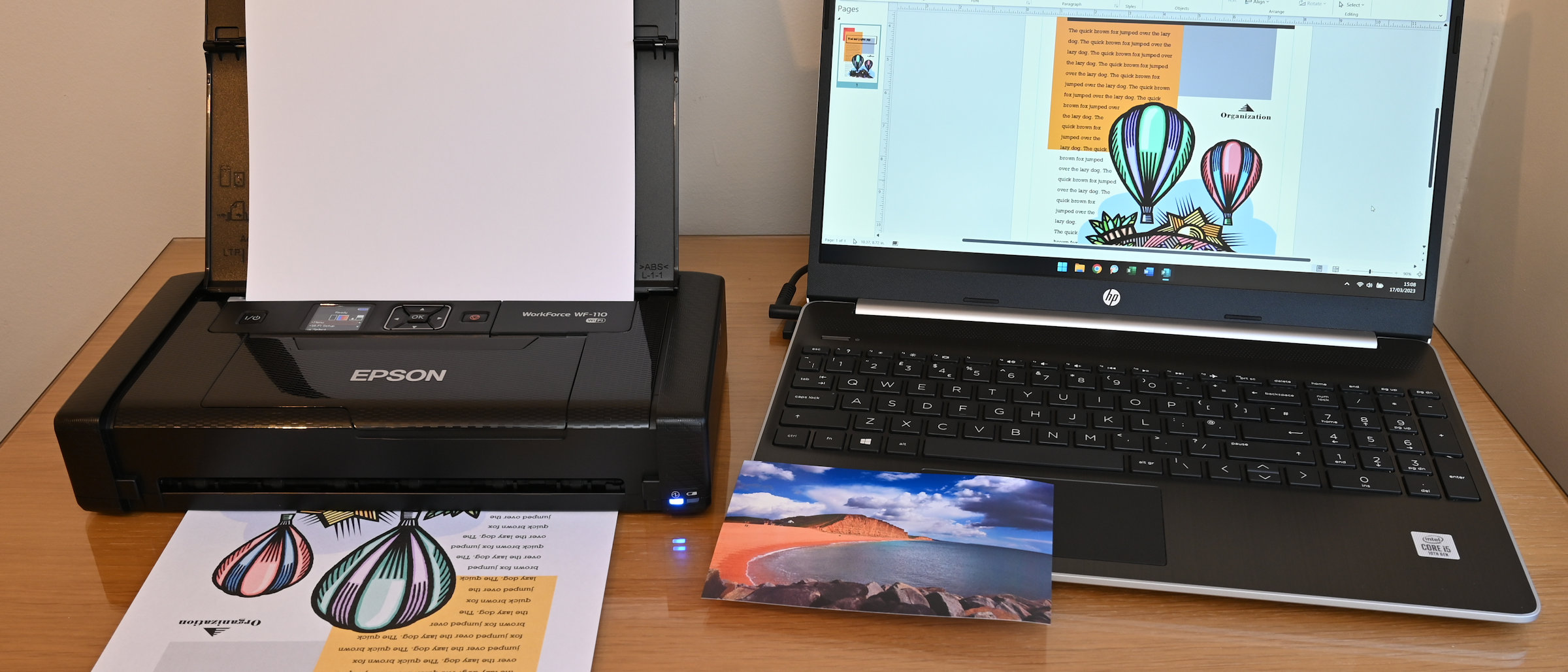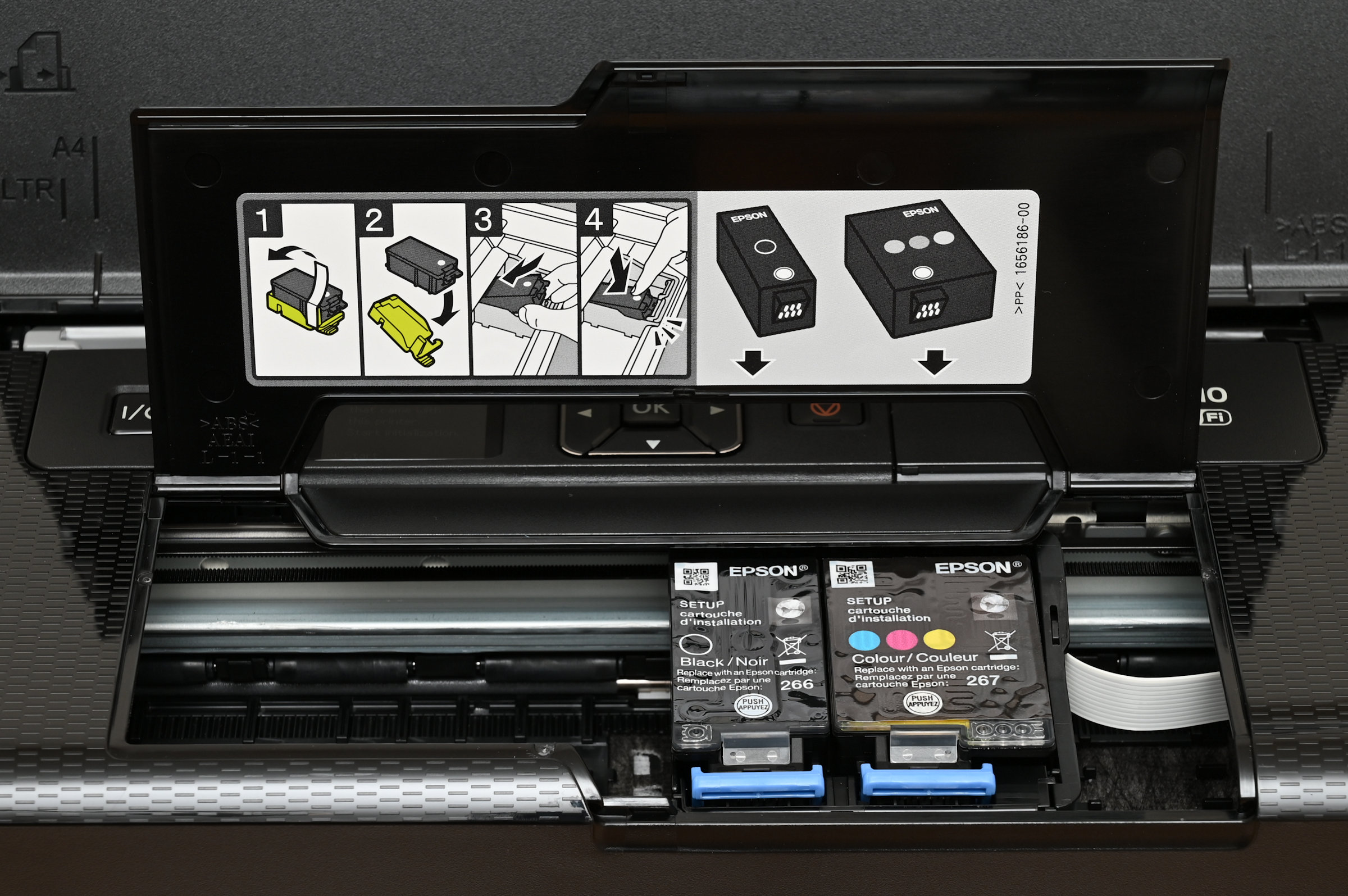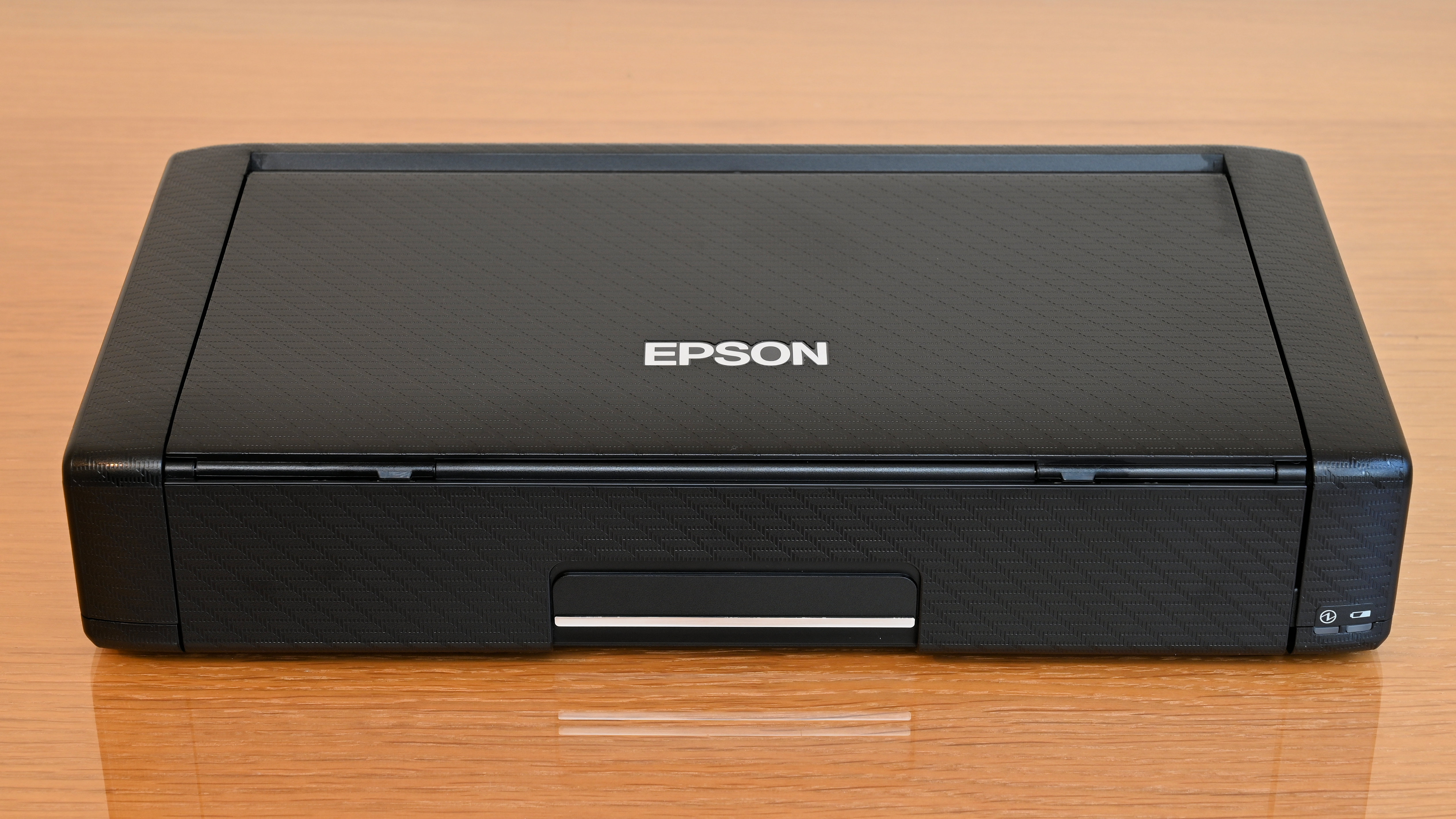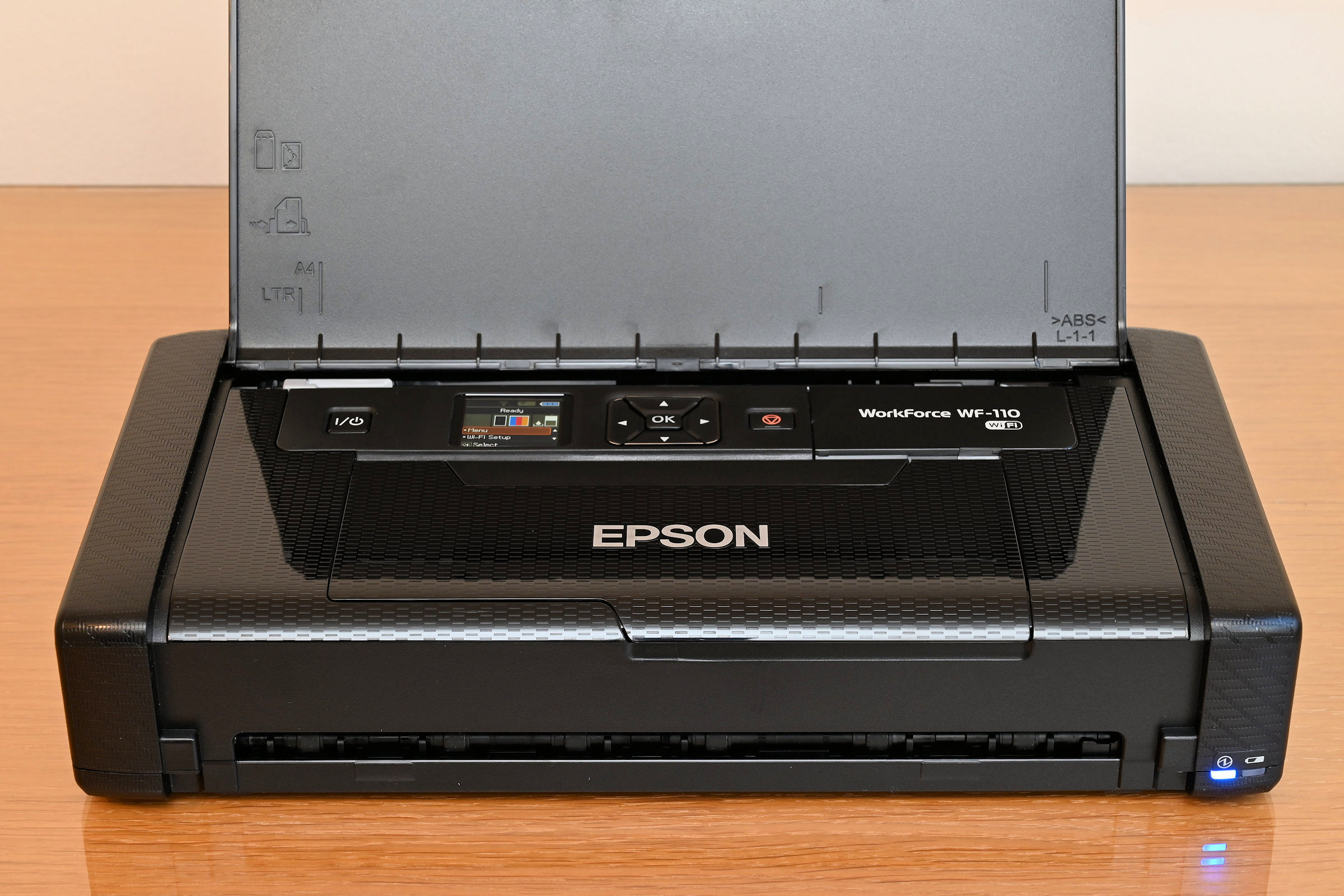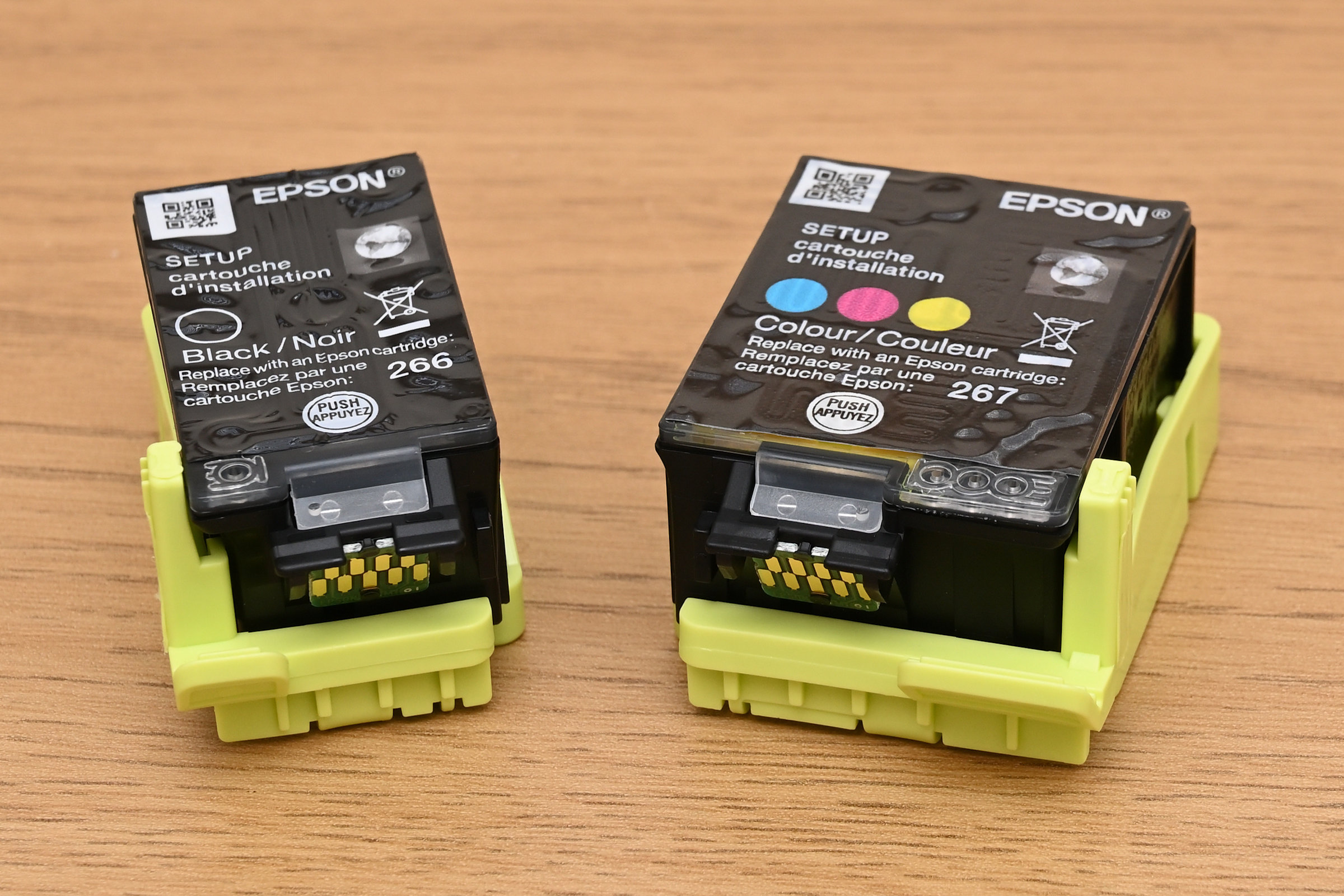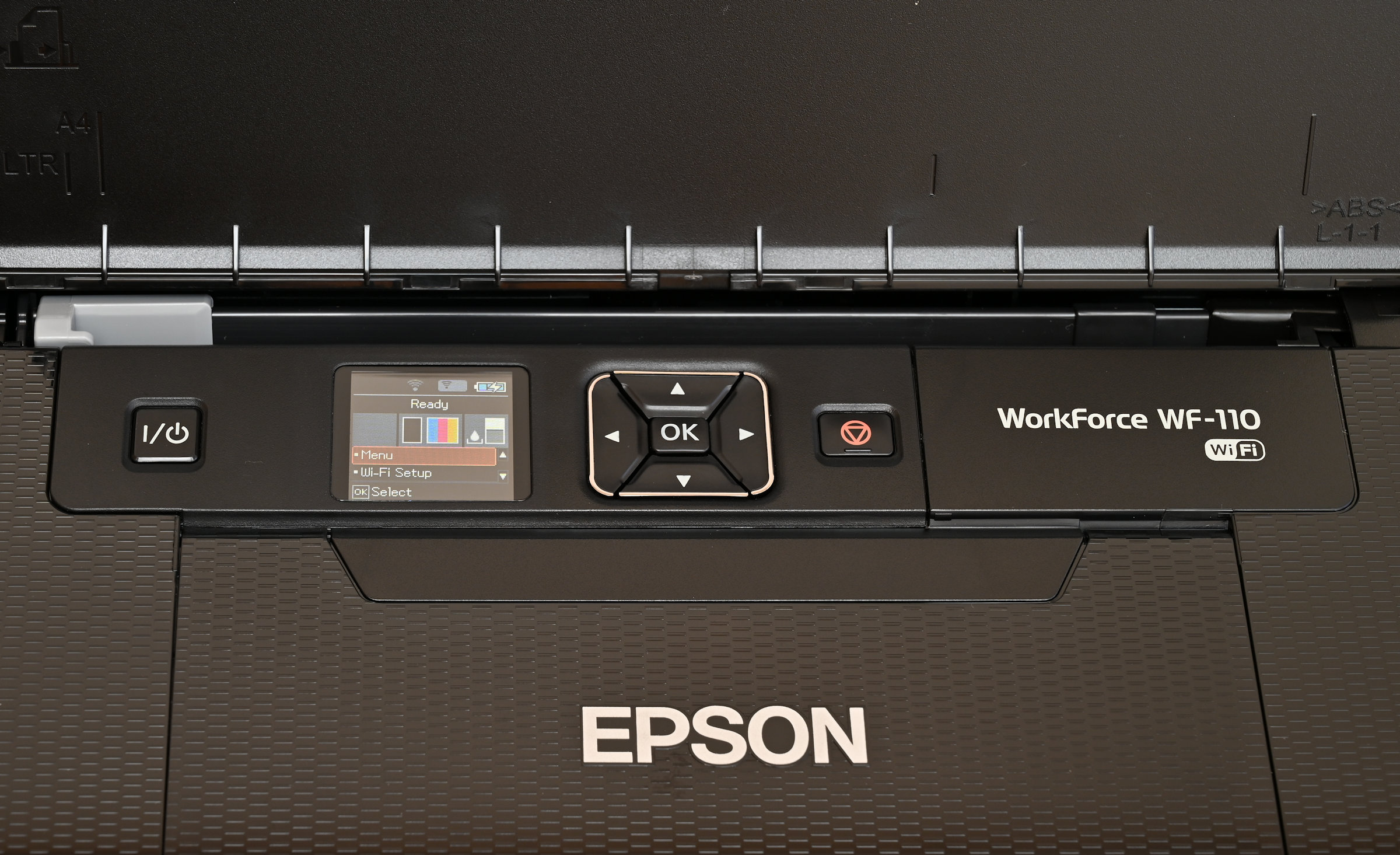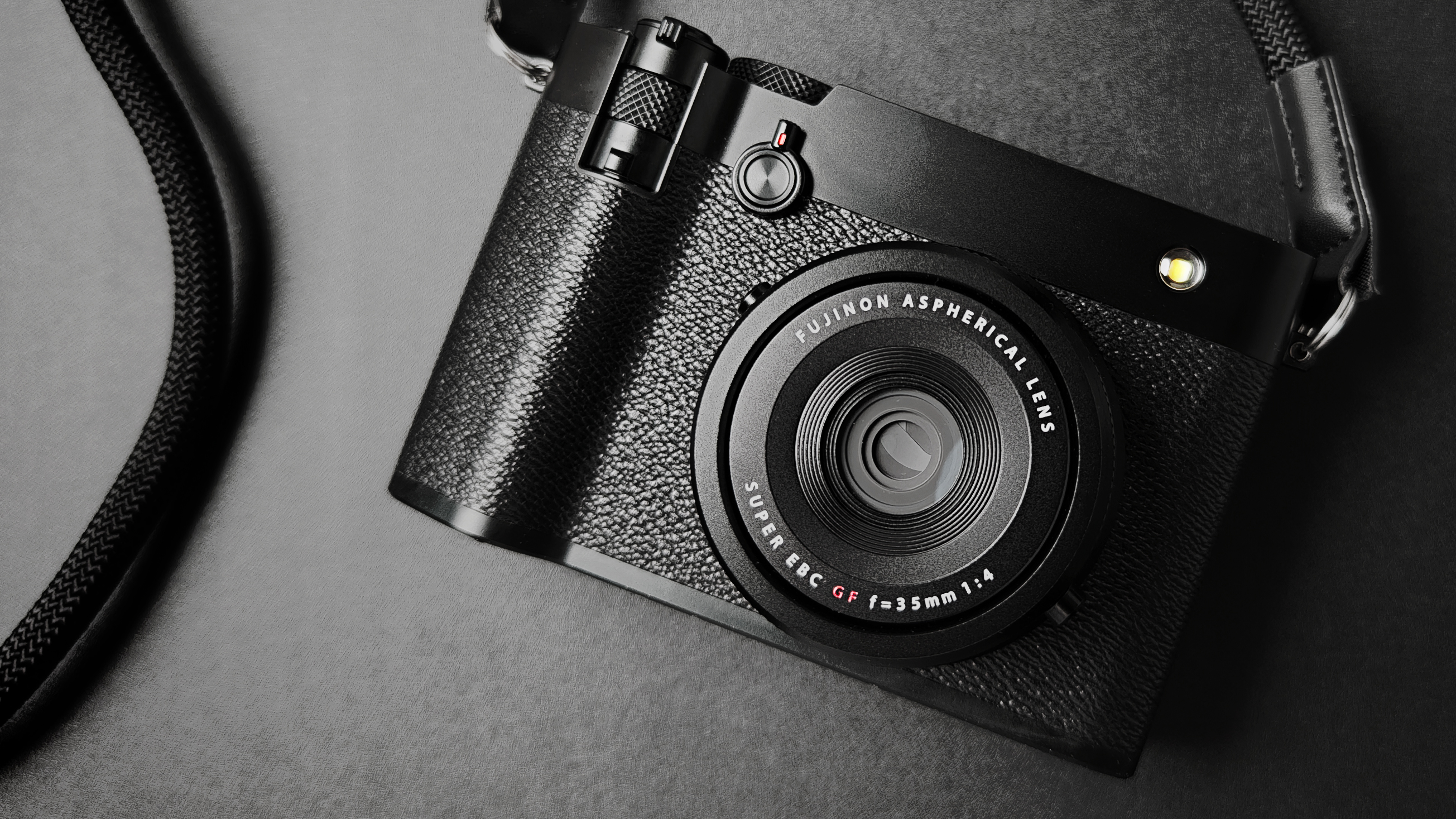Digital Camera World Verdict
This neat little mobile document printer is self-contained, able to run from its own battery pack and features USB, Wi-Fi and Wi-Fi Direct connectivity. The net result is that you can create prints anywhere and everywhere, whether at a client’s premises or out in the wilds. It’s nicely put together and print quality for mono and color documents is very convincing, less so for photo output. However, portability comes at the price of fairly slow print speeds on battery power and expensive running costs based on fairly low-capacity ink cartridges.
Pros
- +
Small, lightweight build
- +
AC and battery powered
- +
Wi-Fi and Wi-Fi Direct
Cons
- -
Pedestrian print speeds
- -
Pricey ink cartridges
- -
Mediocre photo print quality
Why you can trust Digital Camera World
Multi-function inkjet printers are great for the home and small office but the single-function Epson WorkForce WF-110W enables you to take your printing on the road. Relatively compact and lightweight, and able to run from mains power or its own built-in battery pack, it’s an ideal solution for anyone who needs to print full-sized mono or color letter/A4 documents when they’re meeting up with customers or friends on location, even if that location happens to be a coffee bar or somewhere outdoors, off the grid.
Specifications
Ink cartridges: Black pigment, tri-color pigment
Max print size: Letter/A4
Max print speed: 7ppm mono, 4ppm color
Max print resolution: 5760 x 1440 dpi
Input trays: 1
Scanner: No
Display screen: 1.5-inch LCD
Interfaces: USB 2.0, Wi-Fi, Wi-Fi Direct
Dimensions (WxDxH): 309 x 159 x 61 mm
Weight: 1.6kg
Key features
Portability is the key feature of this dinky little printer. Designed and built for a traveling lifestyle, it measures just 309 x 159 x 61 mm and weighs a mere 1.6kg. It’ll therefore easily fit in a small bag and won’t weigh you down on the journey. The WF-110W can run off the mains with its supplied AC adapter but, for truly mobile printing, it also features a battery pack that you can recharge with the AC adapter or via the printer’s USB port using a regular USB charger.
The built-in battery has sufficient stamina for printing around 50 pages from a full charge and, if that’s not enough, an optional external battery is available to power you through just over 400 pages.
Taking the concept of mobile printing further still, the printer features both Wi-Fi and Wi-Fi Direct, so you can link it to laptops, smartphones, and tablets when you’re out and about, without needing to be in a Wi-Fi hotspot. It’s also compatible with mobile solutions like Google Cloud Print and Epson Connect, as well as the Epson iPrint and Epson Email Print apps for Apple and Android.
Build and handling
The WF-110W is smartly turned out and feels pretty solid and substantial, despite its relatively lightweight construction. The hinged lid helps to protect the printer when in transit and opens up to serve as a paper input tray with sufficient capacity for 20 sheets of plain paper or five sheets of thicker photo paper.
Opening the lid also reveals an intuitive control interface based on four directional navigation pushbuttons, OK and Cancel buttons, and a small 1.5-inch color LCD screen. Printed paper is outputted through a slot in the front of the machine, which is also protected by the hinged lid when closed.
For ink, the printer uses a pair of black and tri-color cartridges, giving you the usual mix of cyan, magenta, yellow and black inks for mono and color document printing. The fact that there are only two cartridges makes it easy to order replacements, and they’re easy to fit but as we’ll come to next, you might need to replace them more often than you’d hoped.
The best camera deals, reviews, product advice, and unmissable photography news, direct to your inbox!
Performance
All four of the Epson DuraBrite Ultra inks contained in the two cartridges are pigment-based rather than dye-based. They’re delivered at a maximum print resolution of 5760 x 1440 dpi, with variable droplet sizes down to 1.5pl. That’s fairly typical for Epson printers. The net result is rich and crisp black text and vibrant color rendition for graphics and blocks of color on plain paper.
A further bonus is that pigment-based inks are more resistant to smudging and moisture, compared with dye-based inks. The flip side is that a total of four inks isn’t sufficient for top-notch photorealistic output, and pigment-based inks are a relatively poor choice for creating prints on glossy and luster photo papers. That’s because the larger molecules of pigment ink aren’t fully absorbed beneath the protective top layer of these types of photo papers. Even so, the WK-110W is really designed as a document printer rather than a photo printer, so it’s not a major criticism.
More problematic for document printing is that there’s no auto duplex (double-sided) facility, but that’s only to be expected with such a compact build. The same is true of the ink cartridges, which again are small and have a fairly low capacity. They have a life expectancy of 250 mono pages and 200 color pages, based on standard ISO/IEC tests. This means you’ll probably find yourself replacing cartridges quite often, and they’re not cheap at around $22/£19 for black and $18/£15.50 for the tri-color cartridge. Ink costs work out rather pricey compared with most desktop printers, at about 9c/7.5p per page, for both mono and color documents.
When plugged into the mains, the printer outputs documents at a fairly respectable 7ppm for mono and 4ppm for color. However, these speeds are cut by half when you’re powering the printer from its battery to 3.5ppm for mono and 2ppm for color. Photo printing is also pedestrian, with a borderless 6x4-inch postcard-sized print rated at 77 seconds.
In our tests single mono text and mixed text/color graphics pages took 8 seconds and 25 seconds respectively on mains power, stretching to 15 seconds and 45 seconds on battery power. A 6x4-inch borderless color photo print took 75 seconds on mains and 91 seconds on the battery.
Verdict
This neat little mobile document printer is self-contained, able to run from its own battery pack, and features USB, Wi-Fi, and Wi-Fi Direct connectivity. The net result is that you can create prints anywhere and everywhere, whether at a client’s premises or out in the wild. It’s nicely put together and print quality for mono and color documents is very convincing, less so for photo output. However, portability comes at the price of fairly slow print speeds on battery power and expensive running costs based on fairly low-capacity ink cartridges.
Read more:
• Best wireless printers
• Best all-in-one printer for home working
• Best photo printer
• Best scanner for documents and photos
Matthew Richards is a photographer and journalist who has spent years using and reviewing all manner of photo gear. He is Digital Camera World's principal lens reviewer – and has tested more primes and zooms than most people have had hot dinners!
His expertise with equipment doesn’t end there, though. He is also an encyclopedia when it comes to all manner of cameras, camera holsters and bags, flashguns, tripods and heads, printers, papers and inks, and just about anything imaging-related.
In an earlier life he was a broadcast engineer at the BBC, as well as a former editor of PC Guide.
